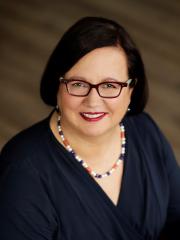Professor Roslyn Boyd

Researcher biography
Professor Roslyn Boyd is Scientific Director of the Queensland Cerebral Palsy and Rehabilitation Research Centre (QCPRRC) an internationally recognised research group at the University of Queensland in the School of Medicine. The centre includes a multidisciplinary team of 38 researchers and in addition provides clinical research leadership to 60 clinicians from multiple disciplines in the state-wide Queensland Paediatric Rehabilitation Service based at the Queensland Children's Hospital. After primary training and experience in Australia and London as a physiotherapist she completed her PhD in neuroscience at La Trobe University, the Brain Research Institute and the Murdoch Children's Research Institute in Melbourne for which she was awarded the Premier's Commendation by the Victorian Government. Prof. Boyd arrived at the University of Queensland in 2007 as a recipient of a Smart State Fellowship and more recently has led an EBrain program grant funded by the Qld Government Department of innovation. Her research team focuses on research on the early natural history of motor and brain development for preschool aged children with CP, the efficacy of novel rehabilitation for children with Hemiplegia and very early detection and early intervention for infants at high risk of CP (all funded by the National Health and Medical Research Council of Australia). This research program is underpinned by advanced brain imaging including functional imaging of the motor and sensory motor cortex, Diffusion Imaging and Functional Connectivity to assess the impact of training on neuroplasticity (NHMRC, ARC). Prof. Boyd has been awarded the prestigious international Gayle Arnold Award on 3 occasions at the American Academy of Cerebral Palsy and Developmental Medicine. Prof Boyd has published over 436 manuscripts in peer-reviewed international journals and has achieved over $45M in research funding.
Prof. Boyd has an international reputation for their research into Clinical Trials or Cerebral Palsy Interventions. They regularly contribute invited systematic review articles, meta-analyses using GRADE for top international journals in Cerebral Palsy (88 in the past 10 years) and have been invited to give >60 presentations (45 international), including as keynote speaker at the Australasian Academy of Cerebral Palsy and Developmental Medicine (prestigious Dinah Reddihough Oration X 2), European Academy of Childhood Disability (EACD) and were appointed to the World Health Organization (WHO) Cerebral palsy management in Low-Middle-Income- countries Committees for the 2020-2023 term.
| Featured projects | Duration |
|---|---|
|
Early PACT: Early Parenting Acceptance and Commitment Therapy Cerebral Palsy Alliance |
2018–2022 |
|
Neurodevelopment of the preterm infant: The Preterm Brain Outcomes Study (PREBO) National Health and Medical Research Council |
2015–2021 |
|
ENACT (ENvironmental enrichment for infants; parenting with Acceptance and Commitment Therapy): A randomised controlled trial of an innovative intervention for babies with an increased chance of autism The University of Queensland |
2019–2022 |
|
LEAP-CP: Peer delivered early detection and intervention for infants at high risk of cerebral palsy/neurodevelopmental disability in Indigenous Australia: Learning through Everyday Activities with Parents Study National Health and Medical Research Council |
2020–2024 |
